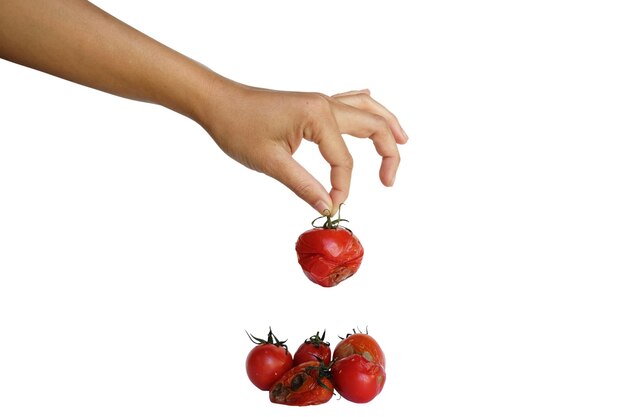Are Tomatoes Harmful to Arthritis Sufferers? 🍅 Understanding the Truth
Is your love for tomatoes affected by joint pain or arthritis? The role of food in managing arthritis symptoms is often discussed, with tomatoes frequently singled out. But are they genuinely harmful, or is it a misconception? Let's explore the truth behind tomatoes and arthritis, debunk myths, and provide helpful insights into making informed dietary choices that could benefit your joint health.
Understanding Arthritis: A Quick Overview
Arthritis is not a single disease but a collection of conditions that cause joint pain and inflammation. It affects people of all ages and can range from mild discomfort to debilitating pain. The most common types include:
- Osteoarthritis (OA): A degenerative joint disease that results from wear and tear on the cartilage.
- Rheumatoid Arthritis (RA): An autoimmune disorder where the immune system mistakenly attacks the joints.
- Gout: Caused by the accumulation of urate crystals in the joint, leading to sudden and severe pain.
While arthritis treatments focus on reducing pain and improving function, lifestyle changes, including diet, play a crucial role.
The Tomato-Arthritis Connection: Separating Myth from Fact
Nightshade Vegetables and Arthritis
Tomatoes, along with potatoes, peppers, and eggplants, belong to the nightshade family. These vegetables contain alkaloids, including one called solanine, often mistakenly thought to exacerbate arthritis symptoms.
Myth Busting: There's no scientific evidence to support that nightshade vegetables directly aggravate arthritis. In fact, these foods are packed with beneficial nutrients such as vitamins A and C, potassium, and fiber.
Individual Sensitivities: Some individuals may find that nightshades appear to worsen their symptoms, leading them to eliminate these foods from their diet as a precaution. Listening to your body and noting changes in symptoms following consumption could help identify any personal sensitivities.
The Nutritional Power of Tomatoes
Tomatoes offer a wealth of nutrients that could potentially benefit those with arthritis:
- Lycopene: A powerful antioxidant found in tomatoes, lycopene helps reduce inflammation, a key concern in arthritis management.
- Vitamin C: Plays a role in maintaining joint health by supporting collagen synthesis.
- Potassium: Essential for muscle function and fluid balance, important for joint health.
Frequently incorporating tomatoes into your diet can contribute to overall wellness beyond any potential arthritis concerns.
Ways Tomatoes Can Support Joint Health
Anti-inflammatory Properties
Tomatoes are rich in antioxidants known for their anti-inflammatory properties. Chronic inflammation is a common characteristic of arthritis, and managing this inflammation is crucial.
- Lycopene: This compound is more effective in cooked tomatoes than raw, making it beneficial to enjoy them in various forms, from sauces to roasted dishes.
- Quercetin and Naringenin: Both flavonoids found in tomatoes, they contribute to the reduction of inflammatory markers in the body.
Supporting Immune Function
A well-functioning immune system is vital, especially for those with autoimmune conditions such as RA. Tomatoes boast immune-boosting vitamins and minerals:
- Vitamin A and C: These vitamins are vital for supporting a robust immune response. A balanced immune system reduces the risk of it mistakenly attacking healthy joint tissues in conditions like RA.
Maintaining Bone Health
The health of bones and joints is intertwined. Tomatoes contribute nutrients essential for bone health:
- Calcium absorption: Some studies suggest that vitamin D can aid calcium absorption, yet getting calcium through food sources also matters for bone health.
Practical Tips for Including Tomatoes in Your Diet
Balanced Eating for Arthritis Management
A healthy, balanced diet should include a variety of foods, including those from the nightshade family, unless specific sensitivities or allergies exist. Here are some strategies:
- Mediterranean Diet: This diet emphasizes lots of fruits and vegetables, including tomatoes, and has been shown to help reduce inflammation.
- Portion Control: Moderation is key. Consuming any food in excess can lead to imbalances.
- Cooking Methods: Opt for diverse preparations like roasting, sautéing, or using tomatoes in soups and salads for varied nutrient profiles.
Experimentation and Personalization
Arthritis affects individuals differently, and a one-size-fits-all approach doesn't exist. Personalizing your diet can lead to better symptom management:
- Food Diary: Track your meals and symptoms to identify potential triggers.
- Consulting Nutritionists: Professionals can provide tailored guidance based on personal health needs.
Debunked Myths and Current Research
While tomatoes have been unfairly blamed for worsening arthritis, recent studies affirm their health benefits. Understanding their effects from a scientific perspective shifts the focus toward informed choices rather than generalized doubts.
- Research Insights: No conclusive evidence links tomatoes or nightshade vegetables to arthritis symptom exacerbation.
- Nutrient-rich Diets: Incorporating diverse, nutrient-rich foods supports overall health, potentially easing arthritis symptoms.
Empowering Your Arthritis Management Journey
While tomatoes are not inherently bad for arthritis sufferers, understanding your body's unique response to foods is key. A diet rich in colorful fruits and vegetables, paired with a focus on anti-inflammatory foods, empowers those with arthritis to feel better and lead active lives.
Key Takeaways:
- 🍅 Tomatoes Are Not Bad: Despite myths, tomatoes aren't inherently harmful to arthritis sufferers.
- 💪 Inflammation Fighters: Incorporate anti-inflammatory foods like tomatoes into your diet.
- 📝 Personal Monitoring: Use a food diary to track how different foods affect your symptoms.
- 🤝 Professional Guidance: Seek advice from nutritionists for a tailored diet plan.
- 🥗 Varied Diet: A balanced diet with diverse food groups supports joint health and general well-being.
Embracing these insights can enhance your journey with arthritis, fostering a healthier lifestyle and promoting an informed relationship with the foods you love. 🍽️

Related Articles
- Are Bananas Bad For Arthritis
- Can An Inflamed Nerve Cause Arthritis
- Can Arthritis Be Cured
- Can Arthritis Be Reversed
- Can Arthritis Become Septic After Infection From Injection
- Can Arthritis Cause Numbness
- Can Arthritis Cause Swelling
- Can Cracking Knuckles Cause Arthritis
- Can Cracking Your Knuckles Cause Arthritis
- Can Exercise Assist Arthritis Relief
